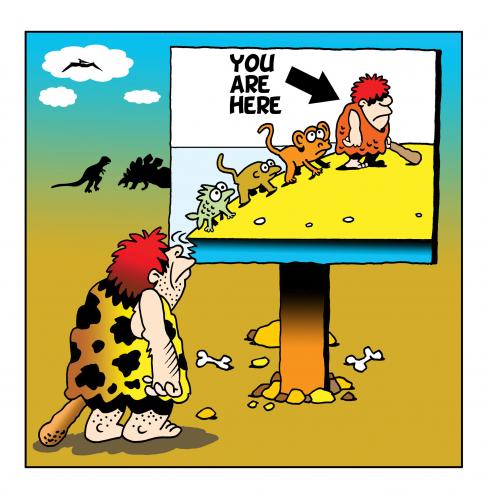
In Part One and Part Two of The Evolution of the Real Estate Investor we looked at the first four stages that a real estate investor goes through as they ‘evolve’ as investors.
Stage One through Stage Four are generally forward moving stages, in which the real estate investor continues to progress, and moves closer to the their eventual goal of purchasing a rental property.
Before we move onto Stage Five, there is still a little bit more to cover on Stage Four, so that is where we will begin:
Stage Four – Continued
You begin to research real estate
It is noteworthy to mention that financial analysis also occurs during this stage. The level of financial analysis between real estate investors will vary quite substantially here, based on the fact that the investor in not sophisticated with real estate investment at this point. The financial analysis consists of crunching number, in order to determine how the real estate investor will end up purchasing their rental property. If the real estate investor has knowledge as to what amount of down payment is required, they will start to figure out from what sources they will draw these funds from. The sources that they consider, could be personal savings, a line of credit, borrowed funds from a family or friend, or perhaps the funds would be coming from a joint venture partner.
In this stage, the real estate investor will also calculate what numeric value their down payment will be. For example, if they are looking at purchasing a rental property for $100,000, their required down payment may be 20% of the value of the home. If this is the case, the real estate investor will know that they will have to come up with $20,000 as their down payment. The figure $20,000 is obtained by multiplying $100,000 by 20%.
In this stage the real estate investor begins to form relationships with either mortgage brokers or their local banks. This is being done because, the investor knows that they will have to call upon these individuals in order to get financing set up for their rental property in the not too distant future.
Stage Five
Fear Strikes
Fear is ugly. I hate fear because fear kills dreams.
Fear is a thorn in the side of a real estate investor. In this stage all of the confidence and forward momentum that the real estate investor built up during the first four stages is eliminated.
This is a point where the real estate investor begins to doubt their plans. They begin to doubt that real estate is a wise investment to make. Fear causes the real estate investor to see all of the negative sides of real estate investment. It now becomes very difficult for the investor to see any of the benefits that they were once very excited about. It is at this stage where a lot of the negative feedback from people significantly affects the investor. For example, the investor may have some friends that think that investing in real estate is a bad idea. They may think that it is a bad idea because their uncles’, neighbour’s, sister’s, friend, once invested in real estate and had a bad experience. This negativity affects the morale of the real estate investor. They quickly find themselves in a downward spiral, with depleted confidence, and uncontrollable fear.
Stage Six
Digging Deep
In my opinion, this is the most mysterious stage. This is the stage where the real estate investor is able to overcome all the negativity produced by Fear. They are fully able to overcome their fear and move onto the next stage.
However, let’s make one thing clear. There are many individuals who are never able to defeat their fears in stage five. As a result, their fear continues to consume them and they never end up investing in real estate. All successful real estate investors were able at some point overcome their fears by digging deep.
You might be asking, what does digging deep mean? Below is an explanation as to what I believe it means.
A real estate investor goes from being paralyzed by fear and inaction to overcoming their fears and regaining their confidence. I have observed that three are a number of different variables that can contribute to the regained confidence on the part of the real estate investor.
One of the ways in which a real estate investor is able to set aside these fears and move forward towards their goals is by:
1) Staying positive
A positive outlook kills fear. It takes a concerted effort to remain positive. However, those that are positive, and make a strong effort to remain positive are always able to overcome their fears and move forward.
Another way that a real estate investor is able to overcome their fears is by:
2) Surrounding themselves with like minded people
Like-minded people provide encouragement to one another, they also all push one another toward achieving their goals.
A third way in which real estate investors over come their fears is by:
3) Having a supportive family
This does not apply in all cases. However, I have seen very successful family partnerships of real estate investors. Also, in some cases, because family values are the same among family members, it is easy to collectively move forward in investing in real estate as a family. Throughout the journey, these family members can lean on one another for support during the tough times, or in order to stay motivated. All of my personal success is a direct result of my supportive family.
A fourth way in which real estate investors over come their fear is by:
4) Having the X-Factor
There are some cases where real estate investors are easily able to overcome their fears. In addition, there are other cases, where fear never enters the mind of the investor. I call this the x-factor, some people have it, and most people don’t. The x-factor really means that a real estate investor is indifferent to fear. Fear does not affect them. Or at least, they do not let fear affect them in the same way as it might affect other people.
In summary, it is in this stage where the real estate investor is able to dig deep and overcome all of their fears.
Stage Seven
You Buy Real Estate
All your efforts pay off in this stage as you purchase your first rental property. A real estate investor experiences a big adrenaline rush in this stage. Also, there is a great sense of accomplishment felt during this stage. Often times, months, or even years of research and anticipation have led up to this stage and this purchase. Although a fantastic accomplishment that should not be overlooked, this however is only the beginning of a real estate investor’s life. This stage often feels like the end of the journey. However, as all veterans’ real estate investors will tell you, this is only the beginning!





